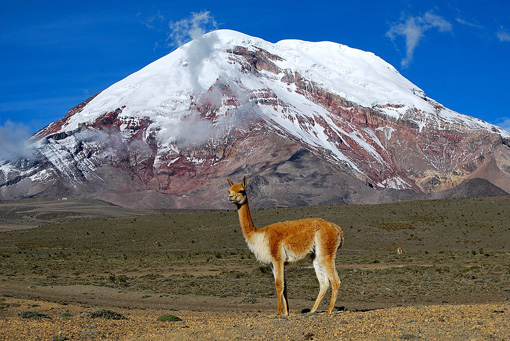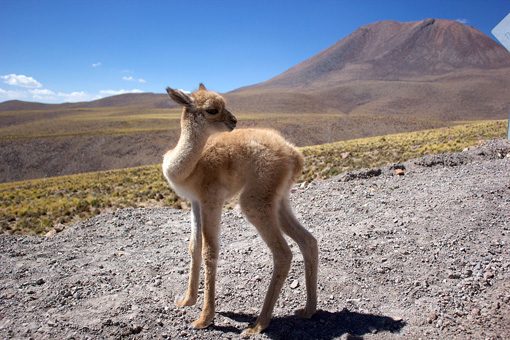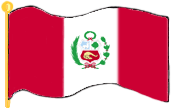La vicuñita
"This is a beautiful song from the Andes. The language is Spanish but the origin of the song is clearly in Quechua (Indigenous) life and culture. Many songs from the Andes are about plants or animals that play an important part in day to day life. This song is about a little vicuña – the smaller relative to a llama or alpaca. Vicuñas are small and delicate and have the finest and most desirable wool of all the animals." –Daria (from World Music by Daria)
This song is a huayno, a type of popular Andean music and dance. It's very common in Peru, Bolivia, and Ecuador, and can also be found in Chile and Argentina. A variety of ethnic groups play huayno music, especially the Quechua people. Not surprisingly, the 3rd verse of this song is in the Quechua language.

La vicuñita
My Little Vicuña
Traditional Song
Traditional Song
(Spanish)
(English)
1. Del cerro yo vengo con mi vicuñita
Del cerro yo vengo con mi vicuñita
Cantando y bailando para mi cholita
Cantando y bailando para mi cholita.
2. Yo soy vicuñita y vengo de la Puna
Yo soy vicuñita y vengo de la Puna
Vengo escapando de los cazadores
Vengo escapando de los cazadores.
3. Ay guei vicuñita rishpi japi sonka
Ay guei vicuñita rishpi japi sonka
Rishpi japi pagapiña numa sonka
Rishpi japi pagapiña numa sonka.
4. Malhaya la hora de ser vicuñita
Malhaya la hora de ser vicuñita
Todos me persiguen por mi lana fina
Todos me persiguen por mi lana fina.
1. I come down from the mountain with my little vicuña (1)
I come down from the mountain with my little vicuña
Singing and dancing with my "cholito" (2)
Singing and dancing with my "cholito".
2. I am a vicuña and I come from the Puna (3)
I am a vicuña and I come from the Puna
I come, having escaped from the hunters
I come, having escaped from the hunters.
3. Oh my, the little vicuna goes everywhere with all its heart
Oh my, the little vicuna goes everywhere with all its heart.
Rishpi japi pagapiña numa sonka
Rishpi japi pagapiña numa sonka. (4)
4. Being a little vicuña is such bad luck
Being a little vicuña is such bad luck,
Everyone pursues me for my fine wool
Everyone pursues me for my fine wool.
Notes
(1) Vicuña - The smaller relative to a llama or alpaca.
(2) "The words 'cholito', 'cholo', 'Chola' and 'cholita' appear in many songs of the Andes. This means a person who is Indigenous. Outside of these songs, the word can be used as an insult, but in these songs it means something more like 'my sweetheart, my darling, my love interest, my dear'. Although the literal translation would be 'my little Indian', the term is used inside the native community to show affection and connection." -Daria
(3) Puna – The high mountains.
(4) Regarding the 3rd verse, it's in Quechua. Here's what Daria wrote about the translation of the 1st two lines (Ay guei vicuñita rishpi japi sonka):
"Ay guai" (ai wai) is an expression meaning - oh, oh my...
"Rispa" means to go (to be as you go, like to go through life)
"Japi" probably means "llapa", meaning everything or all.
"Sonka" probably means "sonqo" or heart.
We don't have a translation for the 2nd two lines in Quechua yet. If anyone can help, please email us.


Thanks!
Thanks!
Thanks!
Thanks and Acknowledgements
Many thanks to Daria from World Music by Daria for the translation and the notes about the song. Check out her site to listen to and explore other music form around the world.
The longer version of the song can be found on Magdalena Fleitas' site in Argentina.
Image 1: Vicuña, Chimborazo (volcano), Ecuador by David Torres Costales, cc.
Image 2: Vicuña fawn in the Atacama Desert (2014) by ALMA (ESO/NAOJ/NRAO)/René Durán, cc.
¡Muchas gracias!

























